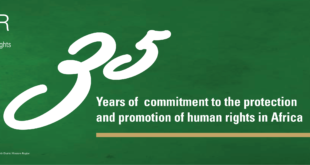DECEMBER 7, 2022 MARTIN PLAUT NEWS, POLITICAL PRISONERS
The independent Eritrean journalists who have been jailed without trial for the last 21 years were remembered in the British Parliament last night. The star-studded event was opened by the Vice Chair of the All-Party Parliamentary Group on Eritrea, Patrick Grady MP, (statement below)
Speakers included Dr Mohamed Abdelsalam Babiker, the UN Special Rapporteur on Human Rights in Eritrea, Lord David Alton, Lyn Brown MP, Labour Shadow Africa Minister, and Awet Fissehaye of PEN Eritrea.
Guests began visiting the exhibition itself, which is in the lobby that all members of parliament pass through to get to the parliament’s committee rooms.
Visitors came to learn about the plight of the brave men and women who refused to toe President’s Isaias Afwerki’s line and served the Eritrean public by writing for the independent media, until their indefinite detention without trial in 2001.
There was time for discussion and debate, as well as interacting with members of parliament and their guests.
This was followed by a meeting in the Jubilee Room, chaired by Patrick Grady, MP, who pledged to keep campaigning with the Eritrean community to get the imprisoned journalists freed. [See his statement below]
Lord David Alton, a frequent speaker in parliament on Eritrea, who has continually raised the subject with Ministers, encouraged British Eritreans to speak to their own member of parliament about the suffering of their people. “This is your democratic right,” he said. “Use it to get your MP engaged with Eritrea.”
Lyn Brown, the Labour Party’s shadow Africa minister, welcomed the exhibition as a chance to raise the issue of Eritrean human rights. She went on to talk about the terrible abuses Eritrean troops had inflicted on civilians during their invasion of Tigray: “we need to ensure that all perpetrators are held to account.”
Dr Mohamed Abdelsalam Babiker, the UN Special Rapporteur on human rights in Eritrea, said that the issue of Eritrea’s “disappeared,” who had never been brought before a court and whose location and safety are unknown, was one of his principle concerns. “I have been attempting to raise this with the Eritrean authorities, by going to Asmara, or at the UN, but they refuse to engage,” Dr Babiker said.
Rob Coward, the Foreign Commonwealth and Development Office desk officer for Eritrea and Djibouti, told the meeting that supporting Dr Babiker’s efforts to visit and engage with the Eritrean authorities was British government policy. “This refusal of access to Dr Babiker is not acceptable” he said.
Awet Fissehaye of PEN Eritrea spoke most movingly about the fate of fellow Eritrean journalists.
“One day, in September 2001” Awet said, “there was a press release from the Eritrean government announcing the temporary ban on private media. In the following days and weeks, private media journalists, writers, poets and government critics, including top government ministers and members of the national assembly, were taken from their houses, work, or the streets and subsequently disappeared from normal life.”
“Families and friends hoped the detentions would not last longer than weeks or a maximum of a few months. But their hope started to fade when the government launched a massive campaign against them, accusing them of treachery and of conspiring with foreigners against the country. Ever since, no-one has known about their whereabouts.”
The ban is still in force. The jailed journalists are still imprisoned, without trial. Only the Eritrean government knows their fate.
The meeting ended with informal discussion. Here is Patrick Grady’s press statement.
 ELL Eritrean Lowland League
ELL Eritrean Lowland League



